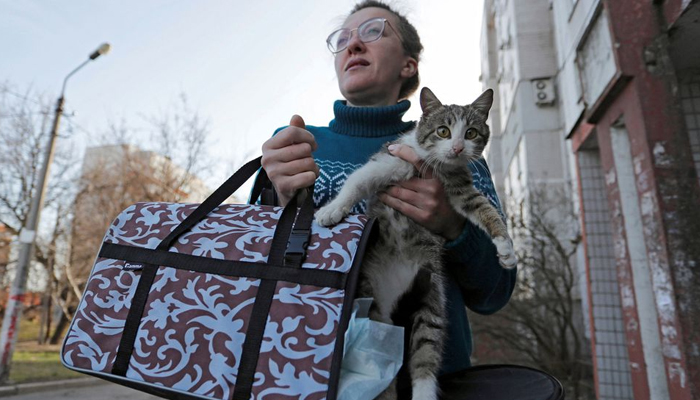Having pets may 'hinder your peaceful sleep'
It would provide more insight for future if owners were asked about how their pets slept, says researcher
March 17, 2023

Having pets can have a positive impact on your health, however, a study has found that it may be adversely affecting your sleep, NBC News reported, citing the study published in the journal Human-Animal Interactions.
The experts in the study analysed several factors such as financial conditions, social standing, and gender that could take a toll on sleep while also taking into account the data from National Health and Nutrition Examination Survey. The data also included those who own a pet: Dog or a cat.
The quality of sleep was determined by being diagnosed with insomnia, trouble while sleeping, cramps and leg jerks during sleep, uneasiness, insufficient sleep and taking longer than 15 minutes to fall asleep and insufficient sleep routine — which is less than 6 hours — and other complications linked to sleep.
The study revealed that leg jerks at night are likely associated with owning a cat whereas, having a dog is linked to a high chance of troubled sleep or facing trouble while sleeping.
The conclusion drawn from the study was consistent with the previous researchers, however, in this observational study, researchers are unsure of a link between poor sleep associated with owning a pet.
The study did not take into account the sleeping place of pets how are pets sleeping or whether are they disrupting owner during the sleep, said the lead author of the study Lauren Wisnieski, an assistant professor of public health and research at Lincoln Memorial University in Tennessee.
She believed that it would provide more insight for future studies if the owners were asked about this.
How to sleep peacefully with a pet
A researcher studying sleep Lieve van Egmond at the Uppsala Sleep Science Laboratory in Sweden observed a change in her sleep after getting a kitten. In her self-study, conducted on her own data on sleep in 20121 noted that shorter sleep is linked with owning a cat, however, she did not report change with a dog encouraging future study on the topic of whether sleep is really affected by owning a pet.
She was not involved in the study but noted that owning a pet is linked with troubled sleep.
Van Egmond also believed that the age of the pet has also a considerable influence on your sleep as how many times they wake up the owner. “If you have multiple pets, they can egg each other on”, she said.
She underlined, in relation to the dogs, that breed and activity level also depends. If animals are having enough physical activity during the day, they can rest better with their owner during the night.
On the contrary, cats have energy at night, she also said citing her data collected in experience with her cat, saying her cat would run in circles and scratch her bedroom to let in even though she locked her room for sleep.
She also found out that if her cat was played with and given food after that, it satisfies her hunting instinct and then her cat goes to rest.
This new study is good information for owners, she believed, to measure their sleep. If owners are having trouble in sleep, they should determine the cause and if it is from their pet, then they should look at how to make their sleep better, Van Egmond added.











